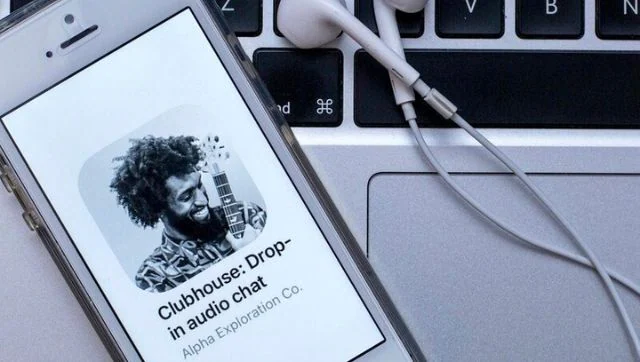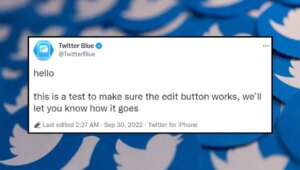FP StaffJun 21, 2021 19:08:23 IST
In a year during which most of the world has been cocooned inside their homes and glued to their devices one way or another — whether to earn a living, stay connected and informed, or simply to survive, the fatigue with screens has set in as well. Clubhouse capitalises on precisely this void left by a visual-heavy virtual experience for internet users by cutting through the clutter as an audio-only app that does not require text or images in any form to communicate.
Here is everything you need to know about why Clubhouse is the internet and cultural buzzword of the moment, and why you should (or shouldn’t) hop on to it —
The origins and rise of Clubhouse
Founded in March 2020 by Silicon Valley entrepreneurs Paul Davison and Rohan Seth of Alpha Exploration Co. as an iOS and invite-only app, Clubhouse gradually gathered steam and became one of the most talked-about social media platforms in less than a year since its launch. In April, Bloomberg reported that the tech startup was looking to raise funds from investors in a round that would put its valuation at an impressive $4 billion, from $1 billion in December 2020.
Clubhouse was introduced to Android users in May 2021, but continued to retain its invite-only caveat.
According to the app, it has more than 10 million active users every week, with over 300,000 rooms created every day, and the average user spends more than an hour on the platform daily. Clubhouse has reportedly seen a boost in its usage and installation numbers ever since its Android launch, with millions more “on the waitlist”, according to CEO Davison.
How does it work?
To give your eyes a break, Clubhouse focusses only on audio via moderated chatrooms where people exchange ideas and views. Imagine a live podcast, if you will, only with the additional option of the listeners partaking in the conversation.
The presence of a host or moderator allows for the exchanges to be more streamlined and less chaotic, as participants will have to “raise hands” before being allowed by the host to speak, else the latter could even mute them. The invite-only nature of the app lends it an exclusivity that users of the platform enjoy. Moreover, not everyone is required to speak if they do not wish to; one can also “leave quietly” just in case they find the conversation in a chatroom humdrum or problematic.
Why are people talking about it?
Clubhouse, like other social media, functions on the principle of FOMO as well. However, it grants its users the perks of being as engaged or disengaged as they wish to be with it, by letting it play in the background as they go about their day and lives.
It also helped the platform that within a year of its launch, Clubhouse has already managed to garner celebrity support with the likes of Elon Musk, Mark Zuckerberg, Drake, Jared Leto, Kevin Hart, and Oprah Winfrey, among others, tuning in to it to interact with their fans on subjects of their interest.
On 31 January, Tesla and SpaceX CEO Elon Musk made his debut (and so far his only appearance) on Clubhouse to discuss the GameStop trading fever, COVID-19 vaccine, colonisation of Mars, dogecoin and bitcoin, memes and monkey brains only to send the user traffic spiralling upward, as the primary chatroom had maxed out at 5,000 within minutes, leading to secondary overflow rooms being formed. Similarly, Facebook founder Mark Zuckerberg too took to Clubhouse to discuss technology and its future earlier this year.
(There are chatrooms where couples go on a Clubhouse date and have listeners tune in to their conversation, including a mental health professional who later passes their verdict on it.)
However, according to a report by Quartz, the app had its moment of glory even before its famous endorsers hopped on board, when in 2020, a group of Black creators held a Clubhouse production of The Lion King. Performances were conducted back to back on the platform on 26 December, with chatrooms achieving full-house status each time as they reached their maximum capacity of 5,000. Its public auditions held in November were well-attended too.
The event was organised by a group of Black creators, which includes guitarist and music director Bomani X, whose face features on the app’s icon. According to the report, Clubhouse downloads nearly doubled in the four days following the staging of The Lion King production. Their efforts greatly helped the platform diversify their user base that was largely tech enthusiast-heavy in its initial days.
How has India warmed up to Clubhouse?
According to a report by The Indian Express, ever since Clubhouse entered the Android market in May 2021, the app has crossed six million downloads from just Android users, of which more than a million were made in India.
The founders said that as a part of their expansion plans in the country, they wish to roll out language support on the app, so that users from the region can continue to reap its perks in their native tongues.“India is such a diverse and dynamic country and we have been astonished by the incredible creativity since we rolled out in the market. We are excited to support creators via the expansion of our Creator First program in India and we look forward to seeing interesting creators coming from all parts of the country,” they said to The Indian Express.
However, the platform has already encountered issues of trolling, identity theft and fake profiles in the country, with Indian celebrities from the Malayalam film industry such as Nivin Pauly, Dulquer Salmaan, Prithiviraj Sukumaran and Suresh Gopi calling out fake profiles created in their name. They have clarified that they are not Clubhouse subscribers.
*
It is perhaps unsurprising that at a time when people have more time to spare as most continue to work from home, the novelty offered by Clubhouse — of breaking away from one’s screens while also remaining clued in to the offerings of the world — can be resisted by few.
The platform has undoubtedly triggered a cultural shift by urging tech giants like Twitter and Facebook to develop similar properties, with the former already testing its new “Spaces” feature — a Twitter audio chatroom where up to 10 users would be allowed to talk to an unlimited number of spectators.
Therefore, maybe it isn’t too early to say that the future is indeed audio.










